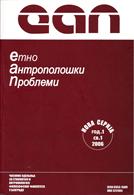Уједињена Европа: економске, образовне и политичке интеграције
United Europe: Economic, educational, and political integrations
Author(s): Vladimir RibićSubject(s): Education, Museology & Heritage Studies, International relations/trade, Politics and society, EU-Accession / EU-DEvelopment
Published by: Филозофски факултет, Универзитет у Београду
Keywords: united Europe; economic integration; educational integration; political integration; pan-nationalism;
Summary/Abstract: Initial political steps towards unification of European nations on level terms, i.e. on non-hegemony terms, were made within the period between the two World Wars. These endeavours culminated with The Treaty establishing the European Coal and Steel Community (ECSC), which was signed on 18 April 1951 in Paris by France, West Germany, Italy, Belgium, Netherlands, and Luxemburg. The Treaty of Rome, establishing the European Economic Community (EEC) and the European Atomic Energy Community (Euratom), signed in Rome on 25 March 1957 broadened the economic integrations, and finally the Maastricht Treaty signed on December 1992 envisaged the establishment of economical and monetary union. Economical unification was followed by integration processes in the field of education that were manifested in joint institutions and projects for improving the expertise and mobility of students, teachers and researchers. As far as the political integration of Europe is concerned, divergent directions occurred after the World War II: the first, streaming towards the establishment of the union of European nations, while the second was reflected in founding of Atlantic, namely Euro-Atlantic organizations. Furthermore, there has been a constant struggle ever since between those advocating a tighter federation and those wishing a looser union of European states. Political integration is followed by attempts to create a fundamentally joint European identity based on mutual cultural heritage. Economic, educational, and political integrations within the framework of European Union are an expression of pan-national aspirations, which could – if successful – result in establishment of a single European nation, founded on the civil-territorial principle.
Journal: Етноантрополошки проблеми
- Issue Year: 1/2006
- Issue No: 1
- Page Range: 61-80
- Page Count: 20
- Language: Serbian

